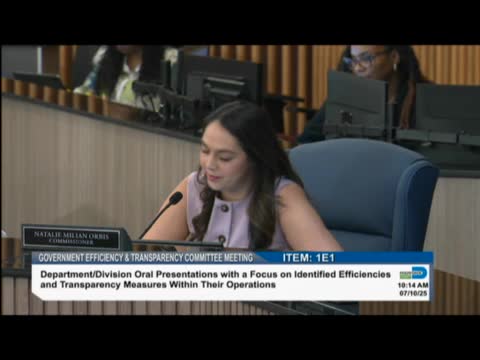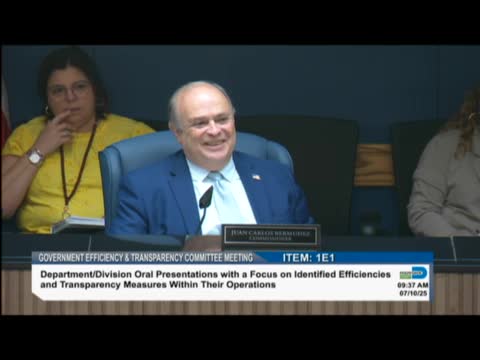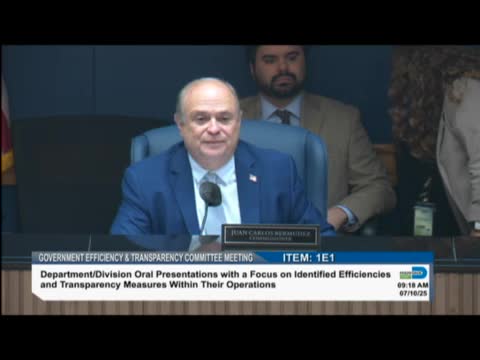Article not found
This article is no longer available. But don't worry—we've gathered other articles that discuss the same topic.

Miami‑Dade transportation director cites $2 billion unfunded needs; potholes, sidewalks understaffed

Miami‑Dade IT department outlines AI tools, data dashboards and cost‑saving steps; commissioners press on staffing, website access and cybersecurity

